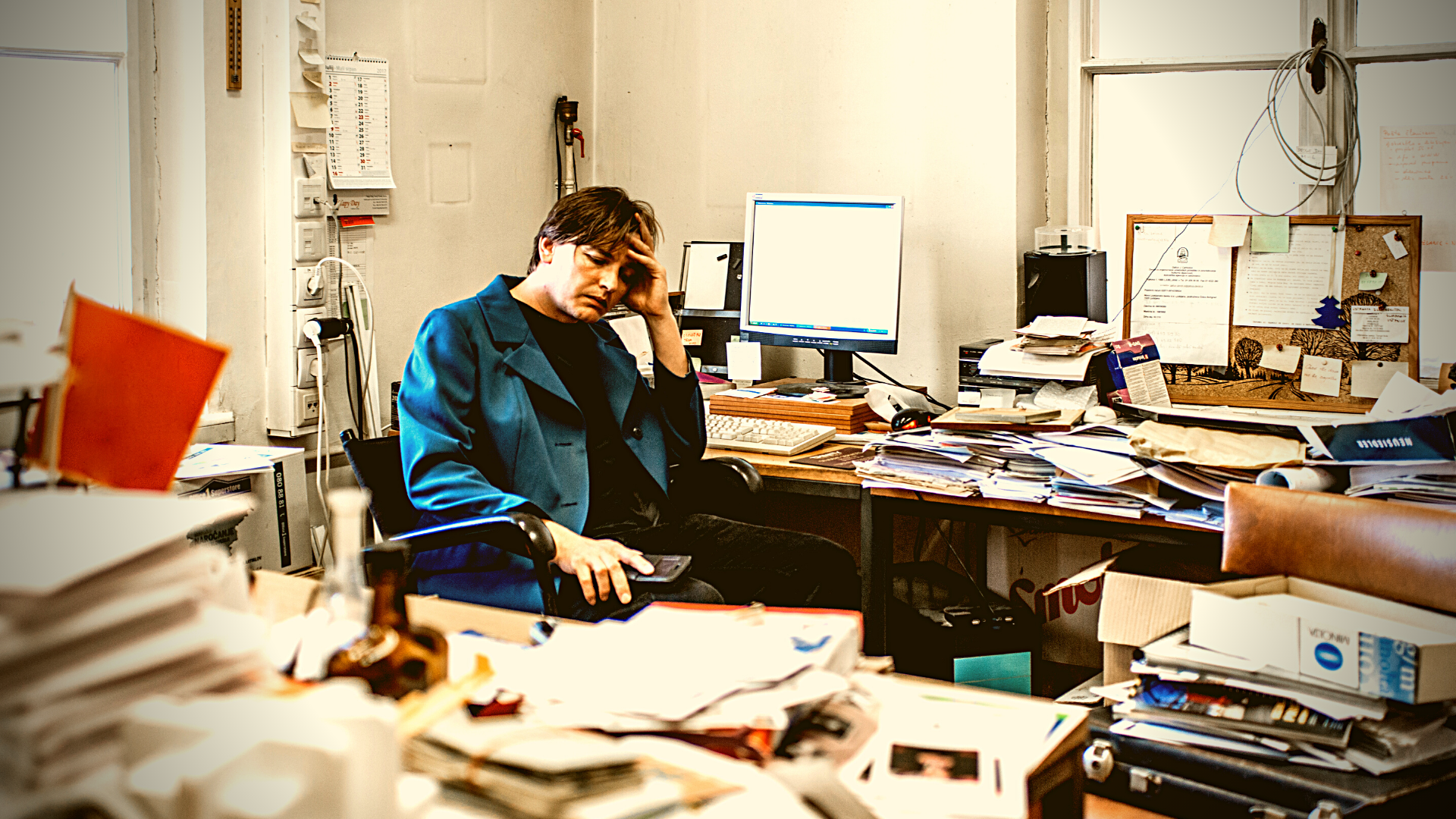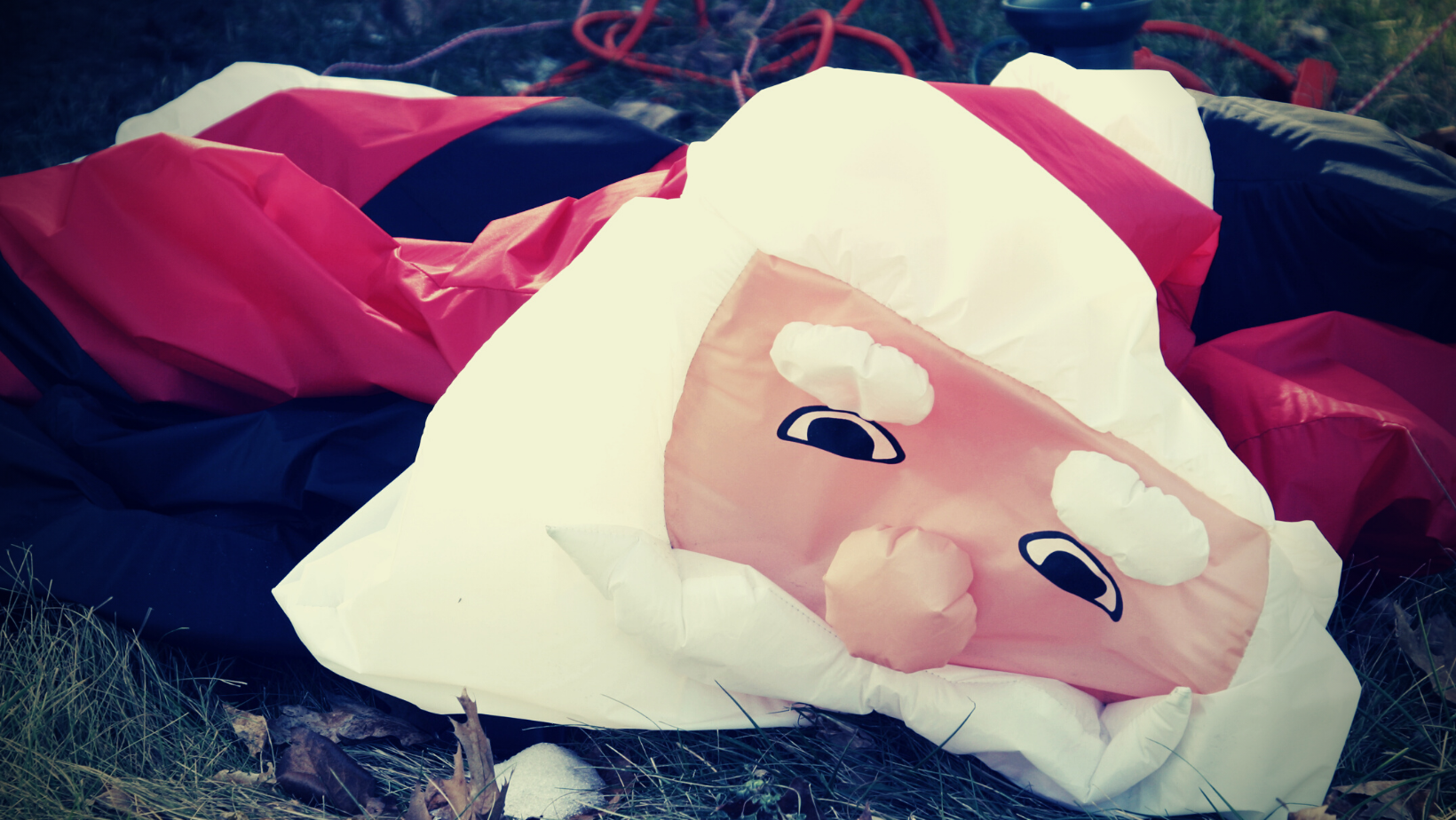News
3 Reasons Everyone Needs a Coach
3 Reasons Everyone Needs a Coach
By Karen Amos
As Bill Gates said… ‘Everyone needs a coach.’ And who am I to argue? I mean, the lad’s done OK for himself hasn’t he?
As a coach, I’m often asked, ‘Do you have a coach?’ The answer is, ‘Yes, I have several coaches.’
I have coaches for various aspects of my life and work, depending on what I need. For example, I have a long-standing coach supervisor who supports and challenges me to improve my own practice as a coach. I’ve also had business and personal coaches at critical points.
I’m writing this blog, as I had a realisation this morning I needed more coaching. This time it’s for physical fitness. Some of you may know I had a hip replacement in the spring. It was successful and I’m now getting my life and mental wellbeing back, being able to walk up my beloved mountains and get the space, peace and exercise I so need. (Even though I do spend a disproportionate amount of time asking myself what on earth I was thinking, when finding myself on a steep slope in the pouring rain!)
So back to my fitness coaching. Most people understandably assume that as a coach myself I’m hyper-motivated all the time and know all the nifty coaching techniques to successfully coach myself to whatever goal I choose. Which is kind of true, but here’s the problem – I’m only human.
That being human means that sometimes I can be a bit defeatist and even, dare I say it, a bit lazy. Yep, let’s face it, we all have our excuses ready from time to time don’t we?
To quote another famous sleb, ‘You can have what you want, or you can have your excuses.’ That one’s from good old Arnie and again, he seems to have done OK for himself too!
“YOU CAN HAVE WHAT YOU WANT OR YOU CAN HAVE YOUR EXCUSES”
So, with all that in mind, I’ve called my gym coach to discuss returning to paying her to allow me to complain, swear and turn into a sweaty mess for a couple of hours a week – otherwise known as gym classes.
Now, I have all the equipment at home and knowledge of training routines to crack on and get my fitness up to scratch again, so why don’t I just do that? Well, the same reasons I would recommend a coach for anyone at work, applies to me too.
1. Challenge
Your coach, whether that’s a leadership, fitness, business or any other type of coach, will push you out of your comfort zone. That ‘un-comfort’ zone is where the change that needs to happen, does happen.
Let’s stick with fitness as an example – you start off with great intentions, but within a very short space of time, you revert back to what’s comfortable. That’s just human nature – it’s how we’re wired – but to get meaningful change we have to enlist someone who’s going to challenge us. This is vital, whether that’s to do that extra set of reps with the weights, or to make that scary decision we’ve been putting off.
The important thing about challenge in coaching is that it’s done with positive intentions and to serve the agenda and goals of the coachee. This isn’t about the coach getting off on how uncomfortable they can make their clients. Any old dictator can do that!
2. Mindset
This goes along with the challenge. A good coach will help you envisage a step-up bigger than you would normally take yourself. They don’t take ‘no’ for an answer and will help you build a positive, can-do, growth mindset, not based on wishful thinking, but on affirmative, tangible action and results.
In short, a good coach helps you get out of your own way.
3. Accountability
Commitment makes or breaks success. Doing something once, however well will not bring you lasting success (even if that one thing is buying a winning lottery ticket. With the wrong mindset, you’ll have blown it in no time). As the US coach Tony Robbins describes, we need to take small, consistent steps to maintain lasting change.
Working with another person is a fantastic way to help build personal accountability. This is particularly true if you’re a senior leader or business owner, or even if you’re doing something for you, such as starting a new fitness programme.
The fact is, stating an intention out loud, particularly to someone whom you respect, means you are much more likely to follow through on your actions. Let’s face it, none of us like to be proved wrong, or wanting do we?
Additionally, paying for this means we feel we have personally invested something. We have skin in the game. It’s an uncomfortable fact, but this is why ‘free’ programmes often fail and have much fewer participants at the end. There’s just not enough investment personally from the participants. Not enough to lose. This way, we’re much more likely to dig deeper – if you’re a born and bred Yorkshire woman like me, you’ll always want to get your money’s worth! This inevitably means better results.
So the question is, how and from whom can you get the right level of challenge, positive mindset and accountability?
Hopefully that’s given you some insights into why all good coaches have coaching. Why not give it a go? After all, think of how much you could gain…
Check out the links below to find out more about our latest coaching-based training courses and programmes. We also offer individual and team coaching on leadership and performance matters.
For schools and education settings
For business and organisations
Or call us: 07714 855757
or click HERE to book in a short, no-obligation chat
Karen Amos is an executive coach and founder of BrightBird Coaching & Training. She supports leaders and managers to get the best out of themselves and their teams. She brings a down-to-earth, practical approach to improving working lives through better leadership, communication and working relationships.
3 Reasons Everyone Needs A Coach
Meetings... what’s the point?
Meetings... what’s the point?
I was coaching a client last week when we entered into the subject of meetings and how these ate into the working week. It amazes me how many people – whether it’s in education, the public, not-for-profit, or commercial sectors – still conduct regular meetings, just because they always have. You know the type… monthly manager’s meeting, weekly team update, daily meeting to moan about people not washing their own mugs up, etc., etc.
With the huge pressures on all employees and leaders, isn’t it time we looked for better alternatives and consigned pointless meetings to the dustbin?
Here are some coaching questions to help improve your productivity around meetings…
‘What’s the purpose of this meeting?’
Is there a specific outcome that can be met by the end of the meeting? Does the stated outcome really happen?
‘What would happen if we didn’t hold this meeting?’
This way you can check the reality of the situation. Often the answer to this question is, ‘nothing,’ or ‘abject relief on behalf of all attendees…’
‘Is there another way to address the issue?’
Think of as many alternatives as you can, including having shorter meetings, less frequently, making better use of IT, improving team communications in other ways, etc., etc.
‘What can we drop from our agenda?’
Have you attended meetings, where there’s a standing item of ‘latest updates’, or ‘Policies & Procedures’? No-one needs to sit in a meeting to be talked at, so why not find other ways to pass on information – and to build team and leader accountability at the same time.
‘Is there an unofficial outcome from this meeting?’
Often the official reason for the meeting has become redundant, but there may be other hidden outcomes and needs that still need to be met – for example, the monthly meeting may be the only time the team has to engage with each other personally. This is certainly the case for many teams who may be geographically dispersed, or even for people just working from home. If this is the case, look at addressing that issue specifically – e.g. would this need be better met by setting up regular team coaching sessions, or social evenings?
Hopefully that’s given you food for thought to begin to free up some time in your busy schedule. If you’d like more information on how we can help you improve your individual, team, leader, or organisational productivity and practice then please contact us at [email protected]
If you would like to develop your own coaching skills as a leader, check out our Coaching Skills for Managers Programme. We will show you how to build skills and confidence to bring a problem-solving mindset to your work. Practical and down-to-earth, with NO HOMEWORK, our training will help you boost productivity and effectiveness for both yourself and your team.
Click HERE to find out more and book your place now.
Tel: 07714 855757 or email: [email protected]
 Karen Amos is an executive coach and Director and founder of BrightBird Coaching & Training. She supports business owners and managers to get the best out of themselves and their teams. She brings a down-to-earth approach to improving working lives through better leadership, communication and working relationships.
Karen Amos is an executive coach and Director and founder of BrightBird Coaching & Training. She supports business owners and managers to get the best out of themselves and their teams. She brings a down-to-earth approach to improving working lives through better leadership, communication and working relationships.
Oppressed by the tyranny of opinion? There is an alternative...
By Karen Amos
Wow - Social Media! Never failing to find an opinion on something! I'd like to offer an alternative and seemingly quite unpopular, certainly underused phrase to help us though the unrelentingly bonkers times we live though...
It's the art of saying, 'I don't know...'
Radical eh?! You'd certainly think so, looking at the news and views out there! Let's face it, so many people will never let lack of information get in the way of a good opinion!
Whilst I make light of this, there is a much more serious point at stake. This is the tendency of so many people, to be polarised in their views. Perhaps this is perpetuated and encouraged by social media, but it appears that everyone MUST have an opinion and MUST choose whether any individual is a ‘demon’ or an ‘angel’, or risk incurring the wrath of those who have nailed their colours to a certain mast.
Thinking rationally, most of us know this isn’t true. None of us are ‘angels’, we all make mistakes and sometimes do things we are even ashamed of. Whilst it's vital we identify and live true to our values, this inevitably means we will also come into conflict with those who don't share them. There are some obvious outliers here, with whom I would hope no-one would share values with, but the fact is they do. I'm interested in politics and hold some strong opinions in some areas, but people are often surprised to hear I have friends and acquaintances right across the political spectrum. Whilst we often agree to disagree, or even not discuss some issues at all, one thing I'm sure of is that they are not 'BAD PEOPLE' just because I disagree with them.
Perhaps it's time we stepped up to the challenge and stepped out of our echo chambers...
Bill George advocated developing our own sense of self-awareness and the ability to genuinely consider other viewpoints if we were to be effective and authentic leaders. Daniel Goleman also cites the need for ‘self-regulation’, which includes being comfortable with ambiguity and a willingness to ‘see the bigger picture’ and change your viewpoint where appropriate.
This will always be a work in progress, but with reflection, we can all become a better version of ourselves. Perhaps enough to pause, reflect and admit, ‘This is a really complex situation with many facets and I don’t have a clear opinion on this.’ Perhaps the world would be a better place if we all did this a little more?
For more reading check out:
Bill George. (2004). Authentic Leadership - Rediscovering the Secrets to Creating Lasting Value. Wiley & Sons.
Daniel Goleman. (1996). Emotional Intelligence: Why it can matter more than IQ. Bloomsbury.
If you would like to develop your leadership skills, check out our Effective People Management Programme. We will show you how to build skills and confidence to get the best out of yourself and your teams. Practical and down-to-earth, with NO HOMEWORK, our training will help you find the authentic leader in yourself.
Click HERE to find out more and book your place now.
Tel: 07714 855757 or email: [email protected]
 Karen Amos is an executive coach and Director and founder of BrightBird Coaching & Training. She supports business owners and managers to get the best out of themselves and their teams. She brings a down-to-earth approach to improving working lives through better leadership, communication and working relationships.
Karen Amos is an executive coach and Director and founder of BrightBird Coaching & Training. She supports business owners and managers to get the best out of themselves and their teams. She brings a down-to-earth approach to improving working lives through better leadership, communication and working relationships.
Authentic Leadership, Birdseed and Droopy Plants…
Authentic Leadership, Birdseed and Droopy Plants…
As many of my followers know, I’m a huge advocate of Authentic Leadership and confess to being on a bit of a mission to show people this is not the fluffy-bunny, touchy-feely (or indeed any other double-barrelled) approach, it may appear.
One area of Authentic Leadership came to mind the other day, when I experienced problems with purchases I was making from two businesses. The leadership area in question was that of ‘Taking Ownership For Your Mistakes’.
I’m an avid gardener and I recently purchased some plants from a mail order company. I’d ordered from them before and was always happy with the quality of their plants. On this occasion however, the plants I received were in very poor condition and were clearly ready for the great compost bin in the sky.
My second purchase involved an order of bird seed from a local business (Yes, it’s a Rock n’ Roll lifestyle up north!). Unfortunately, I was delivered the wrong kind of seeds (No, I won’t go into detail, as the excitement could prove fatal!).
So what’s the link? Well, on the first occasion the business owner took time to find out what the problem was before quickly offering various solutions to my problem – i.e. refund, replacement plants, alternative plants – and a huge apology for not getting this right first time. I opted for replacement plants and remain a very happy customer, already planning my next order from them.
The bird food supplier however, proceeded to maintain they’d ordered the right food, making excuses even after they’d checked their order book and seen their mistake. They were then reluctant to take back the stock, saying they couldn’t return it to their supplier. The result? I ended the call and immediately began looking for a new supplier online – not something I take lightly, as an advocate of supporting local small businesses.
So, the moral of the story…. We’re all human and we all make mistakes, but it’s actually how we deal with things when they go wrong – rather than when they’re going well – that really gives a true measure of our, and our organisation or business’ worth.
If you would like to develop your leadership skills, check out our Effective People Management Programme. We will show you how to build skills and confidence to get the best out of yourself and your teams. Practical and down-to-earth, with NO HOMEWORK, our training will help you find the authentic leader in yourself.
Click HERE to find out more and book your place now.
Tel: 07714 855757 or email: [email protected]
 Karen Amos is an executive coach and Director and founder of BrightBird Coaching & Training. She supports business owners and managers to get the best out of themselves and their teams. She brings a down-to-earth approach to improving working lives through better leadership, communication and working relationships.
Karen Amos is an executive coach and Director and founder of BrightBird Coaching & Training. She supports business owners and managers to get the best out of themselves and their teams. She brings a down-to-earth approach to improving working lives through better leadership, communication and working relationships.
Challenge or opportunity? You decide...
Challenge or opportunity? You decide...
By Karen Amos
As a small business owner, I don’t always have the luxury of lots of spare capacity or fall-backs when things quickly change. Such a thing happened recently when one of my support team decided to take up a new job opportunity. Whilst I’m gutted to be losing a key support, I do understand their reasons for moving on and wish them every success. Inevitably though, this still caused pressures within my business.
After my initial OMG moment, feeling like I should be a model for a Munch painting, I remembered what I did for a living, gave myself a shake and put my coaching hat on. This helped me to re-frame the situation and ask myself:
Is there another way to see this?
It was hard not to focus solely on the multitude of upcoming challenges - our brains are wired to concentrate on perceived dangers, so that's our default setting. Once I'd named what was going on, there were also many positive opportunities for my business that I might otherwise not considered. These included building future capacity, re-prioritising my offer to clients, revisiting my pricing policy and many others. It’s easy to just go with the flow, particularly when things are going well, rather than giving things a bit of a shake up. Let’s face it, who doesn’t like a bit of comfort zone now and again - again, we can thank our brain for this - keeping us out of danger and seeking safety.
It's so easy for businesses and organisations to just grow organically in response to our market or circumstances, in good times and bad, but now and again we need a good reason to go back to the drawing board.
I would just like to add this isn’t about being all Pollyanna about things. As a slightly grumpy, middle-aged Yorkshire woman, Pollyanna isn’t my default setting I can assure you! As good old Tony Robbins says, ‘There’s no point standing in the garden chanting “There are no weeds, there are no weeds” when you’re surrounded by freaking weeds! The only thing that will help is to roll up your sleeves and pull them up!’
So let’s start to see the challenges as practical opportunities for change and getting out of our comfort zone and make the most of things!
If you’re struggling with a challenge or change, ask yourself the following coaching questions:
- What are the opportunities, or positives in this challenge?
- Is there a way to slow things down a little to create some thinking space?
- If so, what are the priority things and what can I put down?
- If I was starting from scratch here, what would I choose to do?
Have you turned a challenge into an opportunity recently? Let’s share the positive mindset!
If you’d like to find out how our 1-to-1 and team coaching programmes and training can help you get ‘unstuck’ and move forward this year…
Check out our website: www.bright-bird.co.uk
Call us: 07714 855757
or click HERE to book in a short, no-obligation chat
Karen Amos is an executive coach and founder of BrightBird Coaching & Training. She supports leaders and managers to get the best out of themselves and their teams. She brings a down-to-earth, practical approach to improving working lives through better leadership, communication and working relationships.
Feeling overloaded? The solution might not be less work...
Feeling overloaded? The solution might not be less work...
By Karen Amos
I’ve just had a couple of interesting sessions with clients, exploring how to create capacity within their organisation and their life in general. Many of us know the feeling of being up to, if not over capacity and the stress, pressure and often anxiety this brings. It’s almost a fact of modern working life - that feeling there’s just no wriggle room and that you daren’t even think about what happens if one more thing goes wrong, or there’s a bout of sickness or a resignation.
I’m a coach not a magician, so I can’t manifest time that doesn’t exist – although it wouldn’t be a bad superpower would it? What I can do often feels a little magical though in the turn-around it brings people, but there’s no woo-woo involved – I simply help my clients find clarity.
Often when I start working with clients, particularly around any ‘Time Management’ type issues, they expect me to do the usual, ‘Prioritise your tasks… delegate…, etc., etc.’ There's very much a time and a place for these tools and I frequently use these along with other time management techniques, this usually isn’t my starting point.
The fact is that most time management issues stem from a mindset issue. This is a kind of good news/bad news situation though.
The bad news is that this means the root of the problem lies with how you view it, so no blaming other people for your problems. You know, the whole, 'My boss is so mean to me' routine. A bit harder to do when you're self-employed mind.
The good news is that simply changing how we think, can completely transform our situation.
When I work with my clients, we look at what’s going on… then look at what’s REALLY going on! That’s the key to coaching – getting right down to the root cause of the problem. We often find this too difficult to do on our own, as we’re viewing the world through a filter of our emotions, values, experiences and expectations. A good coach will help you work out exactly what your pressure points are and also your priority outcomes. (Hint – we often confuse activity with outcomes and these really, really are not the same thing!)
One of the questions I often ask my clients is:
What would change if you accept the fact there will always be too much to do in any given day/ week/ month/ year?
Along with:
What would you do differently if you believed your wellbeing and happiness was just as important as everyone else’s?
By asking these types of questions, I can bring a fresh pair of eyes for my clients, helping them make decisions and create the space they need to work on the stuff that really counts. So to paraphrase that paragon of Stoic philosophy, Marcus Aurelius, the difficulty is often not what's going on around us, but our response to this.
If you'd like to find out how our 1-to-1 coaching programmes can help you get 'unstuck' and move forward this year...
Call us: 07714 855757
or click HERE to book in a short, no-obligation chat
Karen Amos is an executive coach and founder of BrightBird Coaching & Training. She supports leaders and managers to get the best out of themselves and their teams. She brings a down-to-earth, practical approach to improving working lives through better leadership, communication and working relationships.
Wrestling the shark - getting to grips with the unknown...
Wrestling the shark – coaching questions to help you get to grips with the unknown…
By Karen Amos
I’ve just been reading an article about Great White Sharks in Scotland (Spoiler – there are some, but not many, so you’re more likely to die of hypothermia!). As it does, my mind went on a little meander, taking me back to watching the film Jaws for the first time as a kid. I wasn’t old enough to watch it at the cinema, but later watched when it aired on TV in 1981. The rest of my family was out and I remember my Mum asking if I really wanted to watch it on my own. She knew I wasn’t a fan of scary stuff, having been traumatised by the daleks and a pantomime of Beauty and the Beast years before. (I know, it’s not exactly the exorcist, but I’m a horror lightweight OK!)
The article vividly brought back the suspense in the lead up of the film. The tension, anxiety and fear. The glimpses, the terror of the characters and of course, the music. This was going to be horrific – should I be watching it alone?
Then we finally had the reveal and saw the shark in all its terrifying monstrousness… erm, no… I remember laughing out loud. Special effects weren’t exactly enhanced in those days and Steven Spielberg definitely got the hang of it later, but the sight of the obviously latex shark just took the scariness out of everything. From that point on I just buckled in for the ride and enjoyed the rest of the film as a bit of a comedy adventure.
This lead me on another little meander to think about how I use this technique in my coaching to help clients with change. No, I don’t make them swim with great whites (although perhaps there’s a business opportunity in there somewhere…), but the process is the same. Simply, that…
We fear what we can’t see.
Fear is disabling. We’re all familiar with the ‘fight or flight’ adrenaline response to danger, but there’s actually another, less well-quoted response that’s equally as powerful. That’s Freeze.
For this response, think rabbit in the headlights. The rabbit knows the danger is coming and even though it’s naturally built to flee, it just can’t get its muscles to move. We often have the same response in life and the causes and effects can be quite insidious. Usually the cause is nothing so obvious as a shark attack, or a car about to run us over – it’s the stuff lurking in our subconscious. It’s there, we’re largely unaware of it – but it’s controlling our every action, thought, emotion and decision.
This stuff includes fear – particularly fear of failure, or of being judged. Other things can be good old imposter syndrome, or a past negative experience that we subconsciously don’t want to repeat. The problem is that we’re often completely unaware on a conscious level of what’s actually going on and berate ourselves for not driving forward in the way we would like.
My wonderful coach supervisor has a phrase to sum this up perfectly…
‘Let’s identify it – let’s name it – then we can control it.’
If you find yourself procrastinating, or tinkering around the edges of a task or project, this could be the root cause. The fact is that once we name the thing that’s causing the problem, we find, just like with the latex shark, that it no longer has a hold over us. It’s common for my clients, once they’ve named the issue, to quickly and metaphorically roll up their sleeves and crack on with the task at hand as if there never was a problem.
So as usual, here are some coaching questions to break out of the freeze mode and identify and name what’s really going on.
- What is it about this task/issue that I find so difficult?
- What’s the part I really don’t want to do?
- What am I worried may happen if I do this?
- What are the risks for me here? (NB: risks can be personal/emotional as well as physical or financial)
- Can I relate this situation to something that’s happened to me before?
- What would I be embarrassed to admit about my approach to this?
- What’s ‘unseen’ or uncertain here?
- If there was one thing holding me back, what would it be?
It’s a fact that whilst coaching has a focus on action and goals, often the biggest part of the work is around the reality check of ‘What’s REALLY going on here’. The fears, anxieties and general horrible imaginings that hold us back from getting what we really want. Do remember that these are also questions you can use to help someone else who seems ‘stuck’ too, whether you’re a manager, a colleague, or just a friend.
If you’d like to find out how our 1-to-1 coaching programmes can help you get ‘unstuck’ and move forward this year..
Call us: 07714 855757
or click HERE to book in a short, no-obligation chat
Karen Amos is an executive coach and founder of BrightBird Coaching & Training. She supports leaders and managers to get the best out of themselves and their teams. She brings a down-to-earth, practical approach to improving working lives through better leadership, communication and working relationships.
Wrestling the shark - getting to grips with the unknown
Overwhelmed with work? Treat your to-do list as if you were going on holiday...
Overwhelmed with work? Treat your to-do list as if you were going on holiday...
By Karen Amos
Is your workload stressing you out right now?
If so, I’d say you’re in good company. So many people are saying they’ve too much to do and not enough time to do it in. On top of this, there’s the added pressure of the summer holidays. Of course, this is doubly significant for those working in education with end of term looming – but it also applies to anyone who has a break booked, but doubts whether they’ll make it in one piece due to the amount tasks they’re facing.
So before we look at what we can do to manage this, let’s do a quick reality check (Magic wands and wishful thinking are very nice, but some things are just fact – albeit slightly uncomfortable ones!).
FACT #1 – There will always be too much work and too many things to do in any given day, week, month, eternity…
FACT #2 – No matter how motivated, or how good your intentions are, you only have a finite amount of energy. (Sorry to be the bearer of bad news, but you are not a robot!)
FACT #3 – Much of the pressure we feel is artificially created. It comes from other people, or worse still ‘systems’ and cultures, that we leave unquestioned.
FACT #4 – The more tired and stressed you get, the more ineffective and unproductive you become.
OK, so that’s all the doom and gloom stuff, but does that mean we’re all destined for a life of unproductivity and angst? Absolutely not! And the good news is that so much more is in your control than you may believe.
This is why I believe we should take the ‘One week to my holidays’ approach to managing our workload…
So here’s how it usually goes over your last 5 working days:
Day 5 – You’re full of good intentions about how you will clear all those pesky jobs that have lurked on your to-do list all year. That way you can go on holiday with a clear conscience, self-congratulating at all the amazing work you’ve smashed this week…
Day 4 – You’ve tripled the length of said to-do list, but haven’t actually done a single thing, other than fire-fighting more tasks that weren’t even on there.
Day 3 – You realise that half of these tasks will take at least a week each, so decide to put them off until after your holidays (or even next year!).
Day 2 – You’ve ditched 80% of your original tasks and are now prioritising the the things that will cause disaster/mayhem/get you the sack if you don’t do them…
Final working day – You’re ditching tasks from that list with abandon (many of which will never find their way back onto it, even though you were convinced were non-negotiables three days ago). You’re becoming slightly delirious and demob-happy and start doing the bare bones of what’s needed and seem to have forgotten about your perfectionist tendencies after all…
Sound familiar? I know it well!
So if those tasks were so important in the first place, why do some become more negotiable/optional the more time-pressures exert themselves?
Usually it’s because they actually weren’t so important. They were wishes, they were unplanned and they were good intentions (and we all know what the road to hell is paved with…).
That’s why we should be grateful for that last-minute panic before our holidays. It helps us shine a light on what’s really important and also what our day is actually filled with.
Here are some coaching questions to help you see your workload in a new light:
1. Realistically, how long will these tasks take me with no distractions?
2. What would I advise the people I line manage if they presented me with this to-do list?
3. What needs to change in order to achieve the more strategic stuff, or the things that will make a difference?
4. What 3 things can I put in place quickly and easily to cut out distractions and fire-fighting?
5. Who are the key people around me who can help me with this?
Hopefully, you’re now able to give yourself permission to take a fresh view of that never-ending to-do list and have a wonderful, restorative holiday!
If you’d like to find out more about our training courses and programmes on time-management, work-life balance and wellbeing please get in touch. We also offer individual and team coaching on leadership and performance matters.
Call us: 07714 855757
or click HERE to book in a short, no-obligation chat
Karen Amos is an executive coach and founder of BrightBird Coaching & Training. She supports leaders and managers to get the best out of themselves and their teams. She brings a down-to-earth, practical approach to improving working lives through better leadership, communication and working relationships.
Your Christmas Coaching Survival Guide...
Your Christmas Coaching Survival Guide…
By Karen Amos
So here it is – my coaching guide to surviving Christmas!
When I say ‘Christmas’, I’m talking about the general Christmas celebrations we have in the UK, not the religious festival. I do feel these are two markedly different things.
So how did it all get so out of control?
There are reports of Christmas being commercialised since the late 1800’s and perhaps even before, so it’s not necessarily a ‘new’ thing. Santa had been illustrated as dressed in red in the mid 1800’s, but Coca Cola famously linked Santa to its brand colours. The reason? It was difficult to sell fizzy drinks in winter! We’re now in the situation where parents take their children to see the Coca Cola truck and ‘ooh’ and ‘aah’ at the spectacle. Well that clearly worked didn’t it?
The 1947 film Miracle on 34th St is basically about the over-commecialisation of Christmas in a store. Did you know that even Rudolph the red-nosed reindeer was invented in 1939 by another department store to sell merchandise?
So, this retail extravaganza really isn’t that new – along with the stress that we associate with the build up.
The evergreen Christmas stress is tough enough without all the financial concerns people are now having. So, if the thought of Christmas is causing you more stress than pleasure, this is the perfect opportunity to do something different and have the Christmas you really want.
I say this as someone who took charge of their Christmas years ago. I got tired of the retail-obsessed, drink-and-eat-all-you-can-fest, so started my own tradition of going to the Cairngorms for Christmas. My husband and I have one low-key ‘Christmas do’ with our family before departing to the Highlands in our campervan. We walk in the snow on Cairngorm summit on Christmas morning, before having an expensive bottle of wine and tapas and other nibbles for Christmas ‘dinner’.
Lots of people say they are jealous of us being able to do this, but they could just as easily do this themselves if they chose. It’s completely in anyone’s gift to change.
But it’s not that easy?
My advice is to think about your absolute ‘must have’s’ for Christmas – what’s really important? It’s unlikely to be a cuddly toy vegetable from a discount supermarket, or a huge credit card bill and a 7-day hangover!
Here’s a great coaching question to take a step out of your usual mindset:
‘If I could do anything I wanted at Christmas – what would I be doing?’
Your ‘dream’ Christmas may not be possible, but often it’s nearer than you think.
Once you’ve answered this question, pick out the elements that make Christmas special for you, what’s given you joy in the past – and also which bits would you gladly bin!
Then work out all the ways, including seemingly impossible ones, to make this happen.
It often helps to do this with someone else, so they can help you find the solutions and work-arounds.
A big fear is that family and friends will be upset or offended if you’re not doing what they want, so remember:
#1 – You can’t control other people – just yourselves.
#2 – There may be ways you can spend time with family and friends, but in a way that still meets your needs.
#3 – Even if some people are disappointed, they’ll get over it! Let’s face it, by new year, Christmas is already a distant memory for most people.
#4 – Stick to your guns if you’re doing something radically different. Once you’ve made the change, it’s much easier in future to continue with this.
This was definitely the case on our first year going to the Cairngorms, but now everyone expects us to do this and it’s no big deal.
If you’re worried about what other people will think, or have some ‘shoulds’ or ‘oughts’, ask yourself ‘who says?’
And what will actually happen if you don’t do it everyone else’s way? The answer is usually ‘not much’.
Another idea for changing things is to give your Christmas a theme – for example, you could hold an ‘eco Christmas’ where you waste as little as possible, or a ‘sharing Christmas’ where everyone pitches in, or even a ‘charity donation Christmas’.
Think about ways you can make this transition:
- Buffees instead of huge meals
- Everyone brings something
- Everyone brings their own glasses
- A Secret Santa where you just buy one present for each member of the family
- Going out for a walk instead of a huge drinking session
- ‘Buying’ a grand day out to be used later in the year, instead of shop-bought gifts – we found our elderly parents would much prefer a special day out, than yet more ‘stuff’ they don’t need!
Just remember – the constant messages we see and hear are designed for one thing – to help businesses part you from your cash.
I have a business too – I get it – and there’s nothing wrong with buying a nice gift for someone. Let’s just do it in a way that makes everyone happy.
What are your top tips for a stress-free Christmas?
Check out our Positive and Productive Wellbeing programme for schools. We offer many more coaching tips and approaches to help you manage your time and stress and build a positive mindset. CLICK HERE to check out our web page for more info, or to book.
Or call us for a no-obligation chat on: 07714 855757
or email: [email protected]
Karen Amos is an executive coach and founder of BrightBird Coaching & Training. She supports leaders and managers to get the best out of themselves and their teams. She brings a down-to-earth, practical approach to improving working lives through better leadership, communication and working relationships.
Your Christmas Coaching Survival Guide...
Tired of playing the bad guy? Why not play yourself instead....?
By Karen Amos
‘I’m not scared of playing the bad guy’.
I hear this phrase so many times on my travels as a coach and I have to confess, I’ve said it myself in the past.
But let’s just unpick this for a moment. Why when we need to give negative feedback, or have a difficult conversation with someone, do we feel we’ve no option but to be the ‘Bad Guy’? Shouldn’t we just be doing what’s right? I know from my own experience that there are many reasons for saying this phrase.
Here are a couple:
1. Fear – Of what the other person might do or say, or of things getting out of control. Sometimes it’s the fear of not being liked.
2. Lack of options – Often I felt low on resources – either of potential solutions to the problem, or lack of interpersonal skills to deal with this.
The worst part of this was for me, I know I’m not a ‘Bad Guy’. I now recognise I’m a good, kind person, who likes to be fair to others and always tries to do the right thing. This is most of us right?
This situation is a good example of where Authenticity pays dividends. What if you didn’t need to be the ‘Bad Guy’ and could instead, get the right result just by being yourself? Sounds good? Just think, less anxiety, sleeping well, knowing you did your best, increased personal responsibility for the other person and less of the ‘blame game’…. The list goes on…..
The secret is to take a coaching approach to giving feedback and difficult conversations. This approach means you’re not there to ‘fix’ the person, but to work collaboratively with them to find a workable solution. The first step is to be clear what you and they want out of the situation and to work together to find the solution.
Yes, I acknowledge there may be occasions where the person concerned refuses to accept their personal responsibility and you’ll have to deal with this accordingly, but from experience these people are in the minority.
By implementing this Authentic Leadership/coaching approach, I've found that raising issues with people more often than not, results in a positive, constructive outcome. I frequently hear examples from my clients where they've been dreading a conversation, but by implementing this approach have had surprisingly positive outcomes. For example, people who have been placed on performance management have still thanked their manager for their support and as a result have addressed and resolved the issues raised.
No-one likes giving negative feedback and certainly no-one likes to receive it, but to know you’ve truly done your best to work with the person to find a positive solution to the problem must surely rest better with you than having had to play the ‘Bad Guy’ again.
If you'd like to find out more about our value for money in-house Managing Difficult Conversations training courses, click here:
If you'd like to find out more contact us on:
Tel: 07714 855757 or email: [email protected]
Karen Amos is an executive coach and founder of BrightBird Coaching & Training. She supports business owners and managers to get the best out of themselves and their teams. She brings a down-to-earth, practical approach to improving working lives through better leadership, communication and working relationships.












